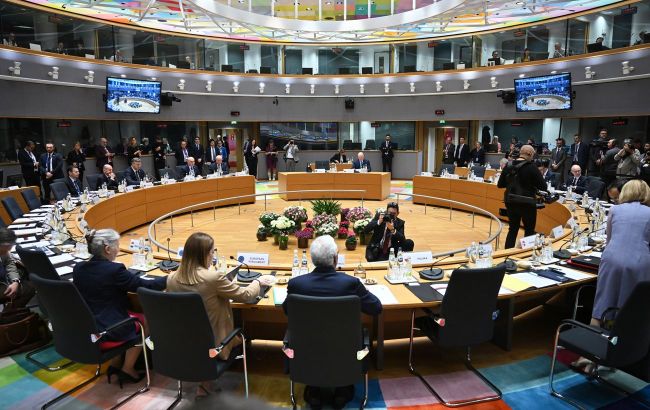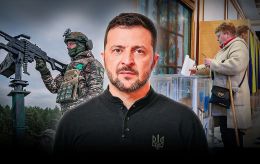Brussels finds workaround to send Ukraine billions from Russia's frozen assets – Politico
 Photo: Ukraine could receive billions without confiscating Russian assets (Getty Images)
Photo: Ukraine could receive billions without confiscating Russian assets (Getty Images)
The European Commission has developed a new "creative" scheme to direct billions of euros in frozen Russian assets to Ukraine. Brussels proposes to exchange cash for EU bonds, thereby avoiding direct confiscation of Moscow’s funds, reports Politico.
The European Commission has proposed a new idea on how to channel billions of euros in frozen Russian assets to Ukraine by replacing the money transferred to Kyiv with EU-backed debt securities.
The new proposal, which one official called "legally creative," could unlock a significant stream of additional financing for Kyiv’s war effort without technically expropriating the Russian assets themselves, which would be legally risky.
According to four officials familiar with the matter, Commission representatives presented this idea to deputy finance ministers behind closed doors in Brussels on Thursday.
The proposal sparked cautious enthusiasm, but no agreements or commitments were reached. One official said a formal proposal could appear soon.
By exchanging cash for short-term EU zero-coupon bonds, the Commission believes it can avoid accusations of confiscating funds. According to officials, while the idea has not yet been approved, other options for using Russian assets are also being considered.
How it would work
Under the rules, any maturing assets held by Euroclear must be transferred to a deposit account at the European Central Bank, which in turn accrues interest on the cash held.
So far, the EU has used the accrued interest to repay its share of the G7 loan to Ukraine of €45 billion, which will soon be fully paid off.
Now, as Ukraine is running out of money, the Commission has proposed using these ECB cash deposits to finance a "Reparations Loan" to help support the war-torn country in the coming years.
To reassure Euroclear, the Commission proposed exchanging the cash deposits tied to the assets for zero-coupon bonds jointly guaranteed by EU countries. Many hurdles remain before this plan can take effect, especially since national guarantees require unanimity.
The Belgian government and Euroclear have repeatedly warned that using the assets themselves to issue a loan could lead to legal problems.
Frozen Russian assets
Nearly €200 billion of Russian assets were frozen after Moscow’s full-scale invasion of Ukraine in February 2022. Most of the assets are held at the Brussels-based financial institution Euroclear.
As Ukraine faces a budget deficit of around €8 billion next year, EU countries are discussing new ideas for continuing to finance the war-stricken country amid constrained domestic budgets.
Earlier, the media reported that the European Commission is developing a mechanism that would allow the transfer of nearly €200 billion in frozen Russian assets for Ukraine’s postwar recovery.
Meanwhile, Brussels is testing the willingness of national governments to transfer these funds into riskier investments that could bring Ukraine additional income and increase pressure on Russia.
Supporters of this approach see it as a step toward the possible seizure of the assets and their transfer to Ukraine as punishment for Moscow’s refusal to pay compensation after the war ends.
However, French President Emmanuel Macron emphasized that the European Union cannot confiscate Russia's frozen assets due to the lack of a legal framework.

